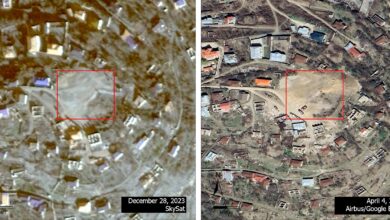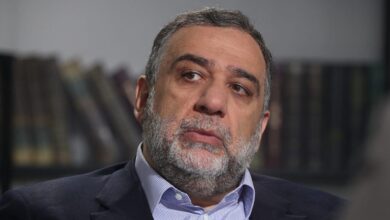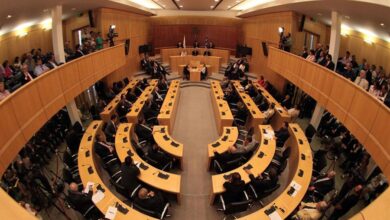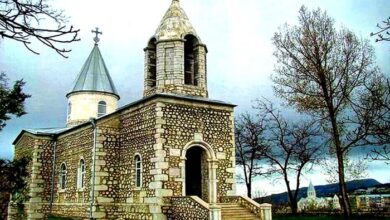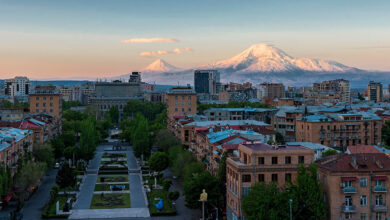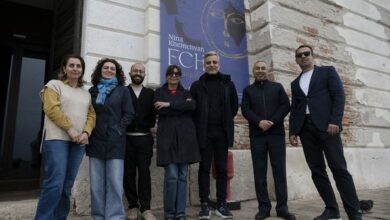Jews, Armenians call for Genocde recognition by Turkey
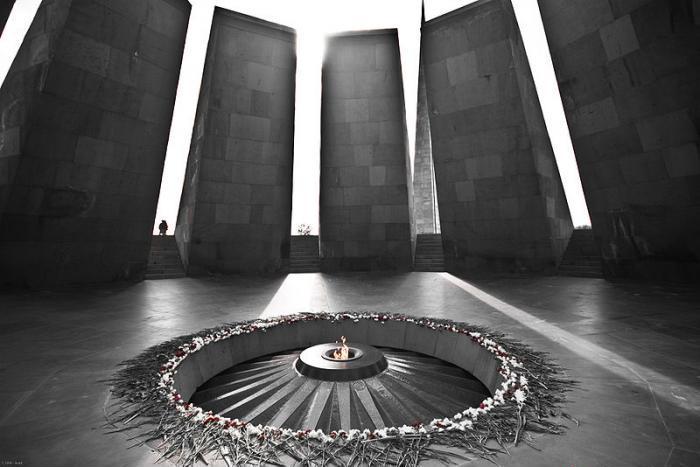
Jews and Armenians gathered in Whippany last week for an event drawing parallels between the Holocaust and the genocide of Armenians during and following World War I, the New Jersey Jewish News reports.
Coinciding with an annual exhibit on local survivors of the Holocaust, the event at the Aidekman Jewish Community Campus featured an Armenian diplomat and Armenian-American activists and clergy.
More than 80 people, evidently split evenly between Jews and Armenians, attended the event, which included a screening of the 2007 documentary The Armenian Genocide.
The event was cosponsored by St. Mary Armenian Church in Livingston and the Holocaust Council of Jewish Federation of Greater MetroWest NJ.
All of the presenters are seeking official recognition and reparations from Turkey for the events of April 1915 through 1918, when Turks were accused of brutal forced deportations and massacres that annihilated about 1.5 million Armenians.
Speakers explained that the international Armenian community continues to lobby for official recognition of genocide.
Last year the United States Senate Foreign Relations Committee adopted a resolution — spearheaded by its chair, NJ Sen. Robert Menendez — calling upon Turkey to acknowledge that the massacres of Armenians in 1915 constituted “genocide,” and encouraging the president to reinforce the lessons inherent in the historical record. Such legislation has never been put to a full vote by the House or Senate.
However, said Karine Birazian Shorhokian, former executive director of the Armenian National Committee of America, eastern region, “the end game is not to get American recognition of the genocide; we’ve done that.”
The end game, she said, “is to get Turkey’s recognition. To have them acknowledge what they did. And then to take the next step: retribution — what is owed to us as victims.”
Having spent much of her career advocating for recognition of the Armenian community’s history, she said, “Launching these bills again and again — it’s a little exhausting.”
And she pointed out that the Armenian community “must decide what we want as a whole. My family still has a deed to our land in Marash. But we are settled in the Diaspora.” A nurse at Holy Name Hospital in Teaneck, she added, “I don’t want to give up my American citizenship.”
An audience member challenged her assertion regarding American recognition, saying President Barack Obama “never followed through” on promises to use the word “genocide” as president in referring to the events of 1915-18 — presumably, say critics, out of deference to Turkey, a NATO ally.
Shorhokian accepted the correction. “Shame on him,” she said, referring to Obama. She elaborated that many politicians have signed official recognitions. “Twenty years ago we had to educate people in Congress about the Armenian genocide. Now, they know it happened. The battle we are fighting today is: If we do this, Turkey will do that. Everyone knows it happened, but we get excuses when we go to lobby on the issues.”
The program was originally scheduled to coincide with the Jan. 26 opening of the 10th-anniversary installation of the exhibit “From Memory to History: Faces and Voices of the Holocaust,” which profiles survivors who live or lived in the Greater MetroWest area. This year, to mark the 100th anniversary of the Armenian genocide, it includes additional material on “Who Remembers the Armenians?” The opening event was postponed twice due to inclement weather. The dual exhibit is on display at the Aidekman campus through April 30.
Armenian Ambassador to the United States Tigran Sargsyan paid tribute to the late attorney Rafael Lemkin, a Polish-Jewish immigrant to the United States who coined the term genocide. Sargsyan made the first plea of many that evening for Turkey to recognize its actions as genocide.
A man identifying himself only as Vartan quoted Elie Wiesel’s comments on Israel’s reconciliation with Germany. “If it was easy for the Jewish people in Israel to enter into a blessed period of reconciliation with Germany — think about it. Jews and Germans can cooperate within the framework of humanizing history. If we can do that, others can do it.”
He continued, “But there’s one problem I have here.” Armenians are expected “to reconcile with Turkey. But unlike Germany — if we are to forgive, someone must ask for forgiveness. Up to this century, we have not had that.”
Shorhokian urged people to write to their members of Congress to address the issue of official recognition of the Armenian genocide.
Baskets of forget-me-not seed packets were provided as a symbol of remembrance of the events of 1915.
The event also included a reading by poet Deborah Gerrish and an ecumenical prayer delivered by Father Arakel Vardazaryan, pastor of St. Mary Armenian Church.


